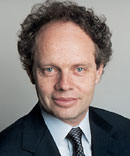Sexual assault is an act in which one intentionally sexually touches another person without that person's consent,or coerces or physically forces a person to engage in a sexual act against their will. It is a form of sexual violence,which includes child sexual abuse,groping,rape,or the torture of the person in a sexual manner.

The American Law Institute (ALI) is a research and advocacy group of judges,lawyers,and legal scholars established in 1923 to promote the clarification and simplification of United States common law and its adaptation to changing social needs. Members of ALI include law professors,practicing attorneys,judges and other professionals in the legal industry. ALI writes documents known as "treatises",which are summaries of state common law. Many courts and legislatures look to ALI's treatises as authoritative reference material concerning many legal issues. However,some legal experts and the late Supreme Court Justice Antonin Scalia,along with some conservative commentators,have voiced concern about ALI rewriting the law as they want it to be instead of as it is.

Richard L. Revesz is the director of the American Law Institute and the Lawrence King Professor of Law at the New York University School of Law. He served as the Dean of the New York University School of Law from 2002 to 2013. He is one of the nation's leading experts on environmental law,regulatory law,and policy.
The legal age of consent for sexual activity varies by jurisdiction across Asia. The specific activity engaged in or the gender of participants can also be relevant factors. Below is a discussion of the various laws dealing with this subject. The highlighted age refers to an age at or above which an individual can engage in unfettered sexual relations with another who is also at or above that age. Other variables,such as homosexual relations or close in age exceptions,may exist,and are noted when relevant,for example in Indonesia.
The ages of consent vary by jurisdiction across Europe. The ages of consent are currently set between 14 and 18. The vast majority of countries set their ages in the range of 14 to 16;only three countries,Cyprus (17),Ireland (17),Turkey (18),do not fit into this pattern. The laws can also stipulate which specific activities are permitted or specify the age at which one or other sex can legally participate. Below is a discussion of the various laws dealing with this subject. The highlighted age is that from which a young person can lawfully engage in a non-commercial sexual act with an older person,regardless of their age difference,provided the older one is not in a position of power,a relative,or is committing another form of exploitation. In some jurisdictions,including Italy and Hungary,there are exemptions if the age difference is within prescribed bounds. All jurisdictions in Europe,except the Vatican City,have equal and gender-neutral age limits.

The age of consent in Africa for sexual activity varies by jurisdiction across the continent. The specific activity engaged in or the gender of its participants can also affect this age and the legality of sexual activity. Below is a discussion of the various laws dealing with this subject. The highlighted age refers to an age at or above which an individual can engage in unfettered sexual relations with another person who is also at or above that age. Other variables,for example homosexual and/or sodomy provision(s) that are illegal or close in age exceptions may exist and are stated when relevant.
Rape is a type of sexual assault initiated by one or more persons against another person without that person's consent. The act may be carried out by physical force,or where the person is under threat or manipulation,or with a person who is incapable of valid consent.
James Barrett Jacobs was the Warren E. Burger Professor of Constitutional Law and the Courts at New York University School of Law,where he was a faculty member since 1982. He was a specialist in criminal law,criminal procedure,and criminal justice.
In common law jurisdictions,statutory rape is nonforcible sexual activity in which one of the individuals is below the age of consent. Although it usually refers to adults engaging in sexual contact with minors under the age of consent,it is a generic term,and very few jurisdictions use the actual term statutory rape in the language of statutes.
Stephen B. Burbank is the David Berger Professor for the Administration of Justice at the University of Pennsylvania Law School.

The age of consent in the United States is the age at which a person may legally consent to engage in sexual activity. Each state and territory sets the age of consent either by statute or the common law applies,and there are several federal statutes related to protecting minors from sexual predators. Depending on the jurisdiction,the legal age of consent is between 16 and 18. In some places,civil and criminal laws within the same state conflict with each other.
Sexual consent is consent to engage in sexual activity. In many jurisdictions,sexual activity without consent is considered rape or other sexual assault. In the late 1980s,academic Lois Pineau argued that society must move towards a more communicative model of sexuality so that consent becomes more explicit and clear,objective and layered,with a more comprehensive model than "no means no" or "yes means yes". Many universities have instituted campaigns about consent. Creative campaigns with attention-grabbing slogans and images that market consent can be effective tools to raise awareness of campus sexual assault and related issues.

Ann Olivarius is an American-British lawyer who specializes in cases of civil litigation,sexual discrimination,and sexual harassment,assault,and abuse.
Campus sexual assault is the sexual assault,including rape,of a student while attending an institution of higher learning,such as a college or university. The victims of such assaults are more likely to be female,but any gender can be victimized. Estimates of sexual assault,which vary based on definitions and methodology,generally find that somewhere between 19 and 27% of college women and 6–8% of college men are sexually assaulted during their time in college. In 2007,23 psychologists conducted a study in which 47% of women in the United States have been sexually assaulted or raped in the past year. This was very beneficial to many other researchers in the same field.

Stephen Andrew Higginson is a United States Circuit Judge of the United States Court of Appeals for the Fifth Circuit and a Judge of the United States Foreign Intelligence Surveillance Court of Review.
Sanford "Sandy" H. Kadish was an American criminal law scholar and theorist. He specialised in criminology and criminal law theory,and was one of the drafters of the American Model Penal Code.
Michelle J. Anderson is the 10th President of Brooklyn College,and a leading scholar on rape law.

Valeria Vegh Weis is an Argentinean-German critical criminologist,criminal attorney,and university professor with expertise in critical criminology and transitional justice. She is an Alexander von Humboldt Fellow at Freie Universitat Berlin where she focuses on the role of victims organizations to confront state crimes. She is also a Research Associate at the Max Plank Institute for European Legal History where she focuses on the role of the Global South in the development of transnational criminal regimes. She is the Vice President of the Instituto Latinoamericano de Criminología y Desarrollo Social
Lawrence M. Solan is the Don Forchelli Professor of Law and Director of the Center for the Study of Law,Language and Cognition at Brooklyn Law School.
Sexual consent plays an important role in laws regarding rape,sexual assault and other forms of sexual violence. In a court of law,whether or not the alleged victim had freely given consent,and whether or not they were deemed to be capable of giving consent,can determine whether the alleged perpetrator is guilty of rape,sexual assault or some other form of sexual misconduct.






